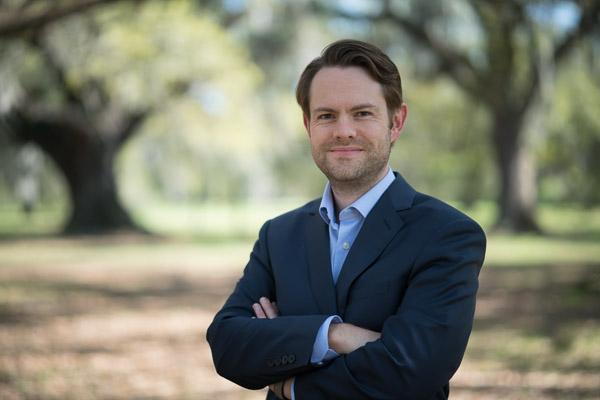Research shows CEO political ideology alignment influences lobbying strategy

Researchers have long known that the political ideology of CEOs influences their market decisions, such as when to make capital investments, but less has been written about how CEO ideology informs so-called non-market strategies, steps the firm takes to help shape the business environment, such as public relations efforts or political campaign donations.
In a paper published earlier this year in the Journal of Management, Scott Kuban, assistant professor of management, explores one particular area of non-market strategy — political lobbying — and sheds new light on the relationship between CEO ideology and the political climate.
“There has been research on lobbying, but the difference with this paper is looking at the context the CEO is in,” Kuban says. “Do lobbying decisions change if the party in power is aligned with the CEO or not aligned with the CEO? That’s what this paper examines.”
Kuban and his co-authors examined the political lobbying activity of more than 4,100 publicly traded companies between 1998 and 2018 — a period that saw control of the House of Representatives change three times — and used campaign and party contribution records to establish the political ideology of their CEOs on a scale running from very conservative to moderate to very liberal.
The authors found that when a CEO’s political ideology diverges from that of the governing party, their firms tend to reduce lobbying expenditures. The higher the degree of ideological divergence, the more the firm’s lobbying expenditures decrease.
“For the most part, CEOs and firms will choose a side and give primarily to a single party,” Kuban explains. “Part of that is relational — politicians are not going to be as willing to give you benefits if they know you’re a fickle spender. On the lobbying side, some of it is that you have fewer relationships and the people you have relationships with are in less important positions. That’s why your spending goes down.”
For that same reason — a lack of relationships with ideologically opposed lawmakers — Kuban says those companies tend to decrease the use of internal lobbyists and increase the use of lobbying firms, organizations that presumably have connections with policymakers on both sides of the aisle.
While the effect is strong across most industries, the authors found the effect is less pronounced for firms in highly regulated industries, such as energy, automotive manufacturing and finance. Highly regulated firms are more vulnerable to governmental actions, Kuban explains, so those firms tend to establish long-term relationships with policymakers in both parties to insulate themselves from swings in leadership. As a result, their lobbying expenditures vary less over time.
Ultimately, Kuban says the biggest takeaway from the study is that context matters.
“Research in this area started with a coarser measure focused on political party affiliation, but now we’re moving towards more nuance by considering the context of the political environment and tying ideology to politicians’ voting records to better measure how liberal or conservative the CEO is,” Kuban says. “These other factors help us deepen our understanding and give us a better view into why the CEOs are doing some of the things they’re doing.”
For practitioners, Kuban says he hopes the research will give board members something new to think about when hiring a CEO.
“If you’re bringing in a new CEO and you’re in an industry where lobbying is important, it might be worthwhile to consider not only whether that person is a good fit for your organizational culture but whether that person is a good fit for who’s in power now,” Kuban says. “The average CEO tenure is five years, so you’re not going to be changing Congress too many times. For boards, it’s something else to consider when they’re looking to find their next CEO.”
“When Not One of the Crowd: The Effects of CEO Ideological Divergence on Lobbying Strategy,” co-authored by Scott Kuban, Michael Nalick, Jason W. Ridge, Asghar Zardkoohi, Leonard Bierman and Mario Schijven, appeared in the Journal of Management.
Interested in advancing your education and/or career? Learn more about Freeman’s wide range of graduate and undergraduate programs. Find the right program for you.
Other Related Articles
- Forbes: 4 Remedies For Reducing Generative AI Mediocrity
- Research Notes: Shuhua Sun
- Research Notes: Alissa Bilfield
- Quartz: Companies that replace workers with AI ‘risk mediocrity,’ expert warns
- BBC News: ChatGPT will soon allow erotica for verified adults, says OpenAI boss
- OHSonline: From the Battlefield to the Workplace - How Staff Rides Improve Safety Decision Making
- Tulane launches technology ethics course bridging science, business and the humanities
- Techstrong.ai: Musk Sues OpenAI, Apple For ‘Anticompetitive Scheme’
